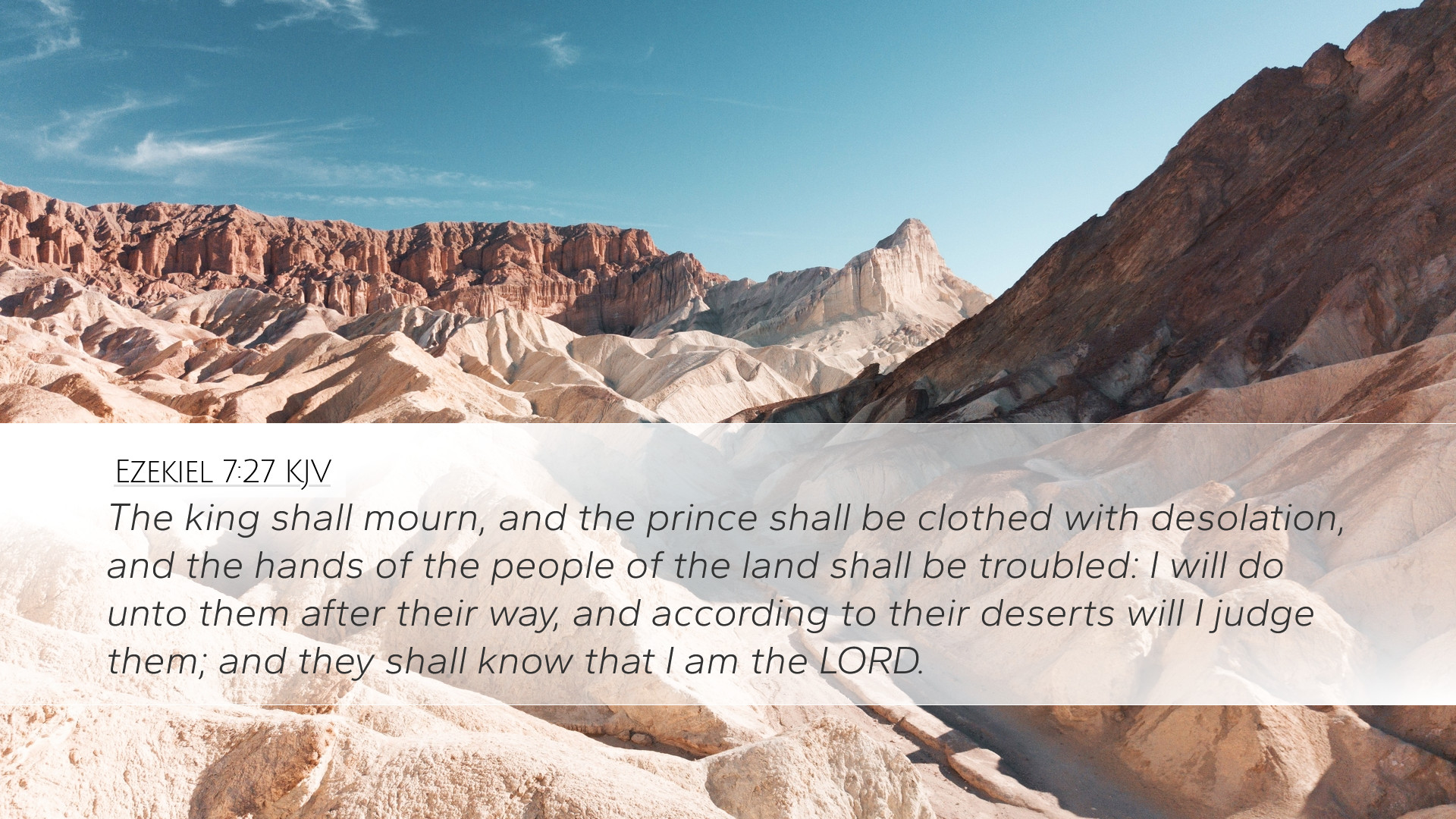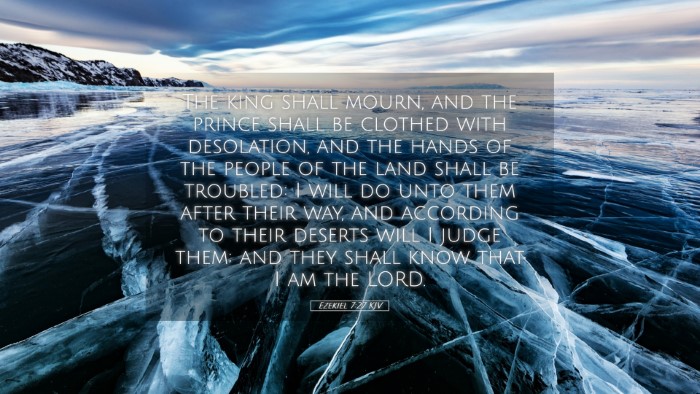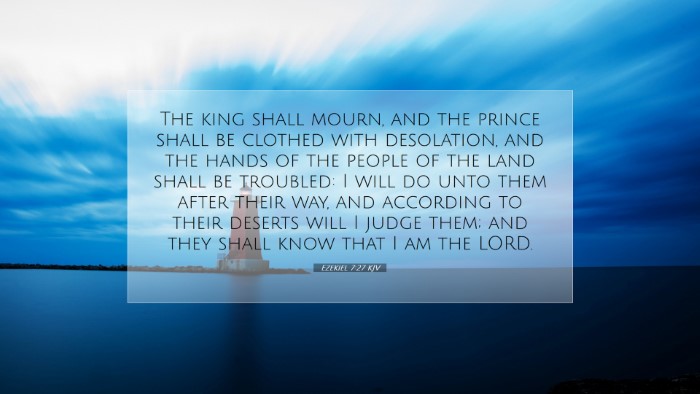Ezekiel 7:27 Commentary
Verse Reference: Ezekiel 7:27 - "The king shall mourn, and the prince shall be clothed with desolation, and the hands of the people of the land shall be troubled: I will do unto them after their way, and according to their deserts will I judge them; and they shall know that I am the LORD."
Introduction
This verse falls within the broader context of Ezekiel's prophecies concerning the imminent judgment upon Israel, signaling the devastating consequences of their sins. The passage underscores the seriousness of divine retribution and the dire state of the nation at the time. In interpreting this text, we will draw insights from notable public domain commentaries, integrating their thoughts to provide a comprehensive understanding.
Context of the Passage
Ezekiel, a prophet during the Babylonian exile, addressed a people who had turned far from God. The chapter describes the impending calamities facing Jerusalem and the consequences of the people's unfaithfulness. Understanding this text requires acknowledging the national grief and personal despair that would ensue from the anticipated destruction.
Commentary Insights
Judgment and Mourning
Matthew Henry emphasizes the sorrow of leadership during judgment. The mention of the king mourning suggests a profound loss of authority and stability. Political leaders who once led the people toward false security would now face the grief of loss as the nation crumbles around them.
Adam Clarke elaborates on the psychological impact on both the leaders and the populace, indicating that the king’s mourning is emblematic of the broader despair. The phrase "clothed with desolation" reflects a state of utter ruin, leaving no room for pride or power.
Divine Retribution
All three commentators agree on the essential theme of divine judgment. Albert Barnes points out that God's judgment is both inevitable and just. The phrase "I will do unto them after their way" illustrates the principle of reaping what one sows, a central tenet throughout Scripture.
This principle serves as a reminder for leaders and the general populace alike about the consequences of moral failure. Matthew Henry warns that when God acts in judgment, He does so in a manner that correlates directly with the actions of the people—what they deserve, they shall receive.
Recognition of God’s Sovereignty
A pivotal statement in the verse is the assurance that "they shall know that I am the LORD." Albert Barnes notes that this acknowledgment serves a dual purpose: it signifies both the recognition of God’s authority and the painful realization of their rebellion. It offers a profound theological insight, suggesting that through judgment, God seeks to turn their hearts back to Him.
Adam Clarke adds depth by highlighting that this knowledge of God should bring humility and repentance, prompting the people to reconsider their ways in light of God’s holiness.
Implications for Contemporary Application
Reflecting on Ezekiel 7:27 carries significant implications for modern readers, especially in a pastoral or scholarly context. Understanding the context of judgment is essential in applying these lessons to today’s world.
The Role of Leadership
Today's leaders, both in the church and society, should take heed from the mourning of the king. Leadership carries profound responsibility, and failure to guide with integrity can lead to national or congregational disaster. Matthew Henry reminds us that true leaders must lead by example, acknowledging they too are under God's scrutiny.
The Nature of Divine Judgment
As believers, reflecting on the nature of divine judgment can serve as a warning and an encouragement. It calls individuals and communities to righteousness. Adam Clarke notes that a healthy fear of God, coupled with an understanding of His grace, should move believers to live faithfully while cherishing their relationship with the Lord.
Recognizing God’s Sovereignty
Finally, the promise that “they shall know that I am the LORD” serves as a reminder of God’s ultimate authority. In a world often marked by chaos and uncertainty, understanding God’s sovereignty can bring peace, encouraging believers to trust in His plans despite the surrounding turmoil.
Conclusion
In the light of Ezekiel 7:27, we see profound truths regarding human leadership, the accountability before God, and the sovereign nature of the Almighty. The insights shared by Matthew Henry, Albert Barnes, and Adam Clarke coalesce into a rich tapestry of understanding that can guide contemporary believers and leaders alike in their spiritual and communal responsibilities.


